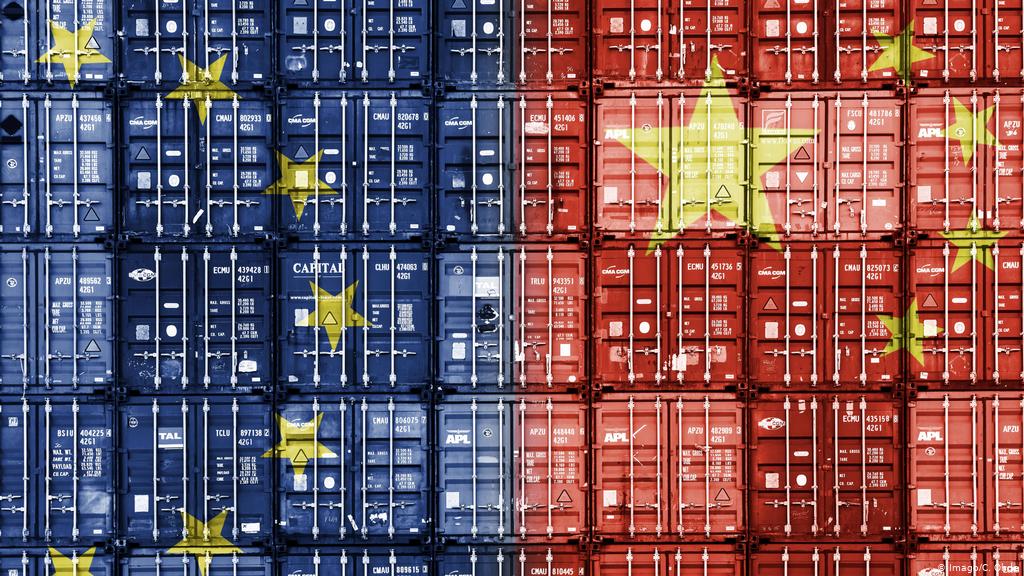China is no longer a developing country. In a matter of decades, the Asian giant has gone from constituting the world’s factory, characterized by low investment in infrastructure and R&D, and very low labour and environmental standards, to being part of the group of world powers, which daily struggles to extend its influence in all regions of the world. To reach its current position, Beijing has had to make great efforts to modernize its policies and strategies and to change its perception abroad. Initiatives such as Made in China 2025 to promote and restructure its industry with which China aims to be a leader in technology on an international scale, or the ban on the import of plastic waste in January 2018 are some examples of the great changes that China is undertaking. The Belt and Road Initiative is no exception, but in this case, we are facing an initiative that represents a serious challenge to many other major world economies.
Memorandums of Understanding
To carry out investments in third countries with a legal basis, the Chinese Government is currently concluding and signing numerous Memorandums of Understanding (MoU) with its objective States, the majority of which are developing States that can take advantage of these investments, but also with developed countries because of geostrategic reasons, such as Italy.
The strategy of signing MoUs with individual European Union Member States on a bilateral basis is based on the idea of “divide and conquer”. China is aware of the reluctance of some European countries and the European Union itself to do business with it due to the nature of its economic structure, poor transparency and lack of reciprocity, so it is focusing its efforts on finding allies with which China can retain its negotiating power and win the balance of power.
These MoUs are international agreements, but not international treaties as such, which implies that these documents may not lead to rights and obligations under international law. As stated in the China-Italy MoU, “no provision of this Memorandum is to be understood and performed as a legal or financial obligation or commitment of the Parties”, falling, this way, within the field of the soft law. Finally, to interpret the text of the MoU, both Parties should apply their national legislations and, as for the Italian part, the EU Law.
Violation of EU Law?
As stated before, every MoU signed between China and an EU Member Stated should be interpreted in accordance with EU Law and should not contravene the Treaty of Lisbon. The problem here is that Member States are currently violating the Council Decision of 22 July 1974 establishing a consultation procedure for cooperation agreements between Member States and third countries. Specifically, this Decision states that “Member States shall inform the Commission and the other Member States of agreements relating to economic and industrial cooperation which they propose to negotiate or renew with third countries and of commitments and measures which are proposed by the authorities of the Member States concerned as part of cooperation agreements and which may affect the common policies, and in particular of those which may affect trade”. According to the Commission, as stated in a European Court of Auditor´s report, they have not been informed of any such MoUs signed by Member States, thus violating the 1974 Decision.
Furthermore, we can lift the latch of a deeper debate. If we take a close look at the content of these MoUs, we will be able to perceive that every one of them contains an article related to trade. In the case of the China-Italy MoU, this article states that “The Parties reaffirm their shared commitment to free and open trade and investment, to counter excessive macroeconomic imbalances and to oppose unilateralism and protectionism (…) They will promote transparent, non-discriminatory, free and open trade and industrial cooperation, an open procurement, level playing field and respect for intellectual property rights”. Interpreting this paragraph broadly, and focusing in the content rather than the format, one could argue that this text is masking a typical disposition for a Free Trade Agreement, which are international treaties, governed by international law, that are intended to abolish trade barriers. Free Trade Agreements fall within the scope of the Common Commercial Policy of the European Union, which is an exclusive competence of this international organization, meaning that Free Trade Agreements must be concluded by the EU and not by its Member States bilaterally, according to the process established in article 207 of the Treaty on the Functioning of the European Union (TFEU). Besides, the 1974 Decision emphasizes the importance to communicate to the European Commission and the rest of the EU Member States any bilateral agreement which may affect common policies, and in particular those which may affect trade.
To avoid this serious violation of EU Law, Member States, such as Italy, have made an effort to ensure that the format of the MoU clarifies its non-binding nature, using the form of a MoU and terms like “unimpeded trade and investment” thus not giving the EU the chance to contest and declare illegal this kind of agreements. However, taking into account the content of the MoU and not its format, a serious violation of EU Law can be argued. As a last resort, if the Commission considers that a Member State has failed to fulfil an obligation under the Treaties, it shall deliver a reasoned opinion on the matter after giving the State concerned the opportunity to submit its observations. If the State concerned does not comply with the opinion within the period laid down by the Commission, the latter may bring the matter before the Court of Justice of the European Union.
Weakening European Union trade power
Leaving behind the discussion whether these MoUs represent a violation of the EU Law or not, there is no doubt that these agreements entail a weakening of the EU trade and investment power. Traditionally, all trade and investment relations with third countries have been formalized through multilateral agreements concluded by the EU and governed by the European principle of subsidiarity.
The growing number of bilateral agreements for cooperation, here called MoUs, between EU Member States and other international powers such as China in areas related to trade and investment not only implies a weakening of European integration in these matters, already hit by issues such as Brexit or the consequences of Covid-19, but an increase in Chinese influence in the region, thus weakening mutual trust between European countries, which, in the view of the European Commission, the European Council, the European Parliament, and other EU Member States, puts the European Union at a crossroads.
Picture credits: Imago / C. Ohde






Be First to Comment